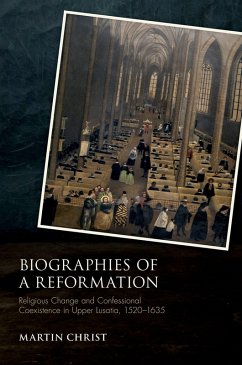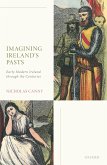Biographies of a Reformation: Religious Change and Confessional Coexistence in Upper Lusatia, c. 1520-1635 investigates how religious coexistence functioned in six towns in the multiconfessional region of Upper Lusatia in Western Bohemia. Lutherans and Catholics found a feasible modus vivendi through written agreements and regular negotiations. This meant that the Habsburg kings of Bohemia ruled over a Lutheran region. Lutherans and Catholics in Upper Lusatia shared spaces, objects, and rituals. Catholics adopted elements previously seen as a firm part of a Lutheran confessional culture. Lutherans, too, were willing to incorporate Catholic elements into their religiosity. Some of these overlaps were subconscious, while others were a conscious choice. This book provides a new narrative of the Reformation and shows that the concept of the 'urban Reformation', where towns are seen as centres of Lutheranism has to be reassessed, particularly in towns in former East Germany, where much work remains to be done. It shows that in a region like Upper Lusatia, which did not have a political centre and underwent a complex Reformation with many different actors, there was no clear confessionalization. By approaching the Upper Lusatian Reformation through important individuals, Martin Christ shows how they had to negotiate their religiosity, resulting in cross-confessional exchange and syncretism.
Dieser Download kann aus rechtlichen Gründen nur mit Rechnungsadresse in A, B, BG, CY, CZ, D, DK, EW, E, FIN, F, GR, HR, H, IRL, I, LT, L, LR, M, NL, PL, P, R, S, SLO, SK ausgeliefert werden.









